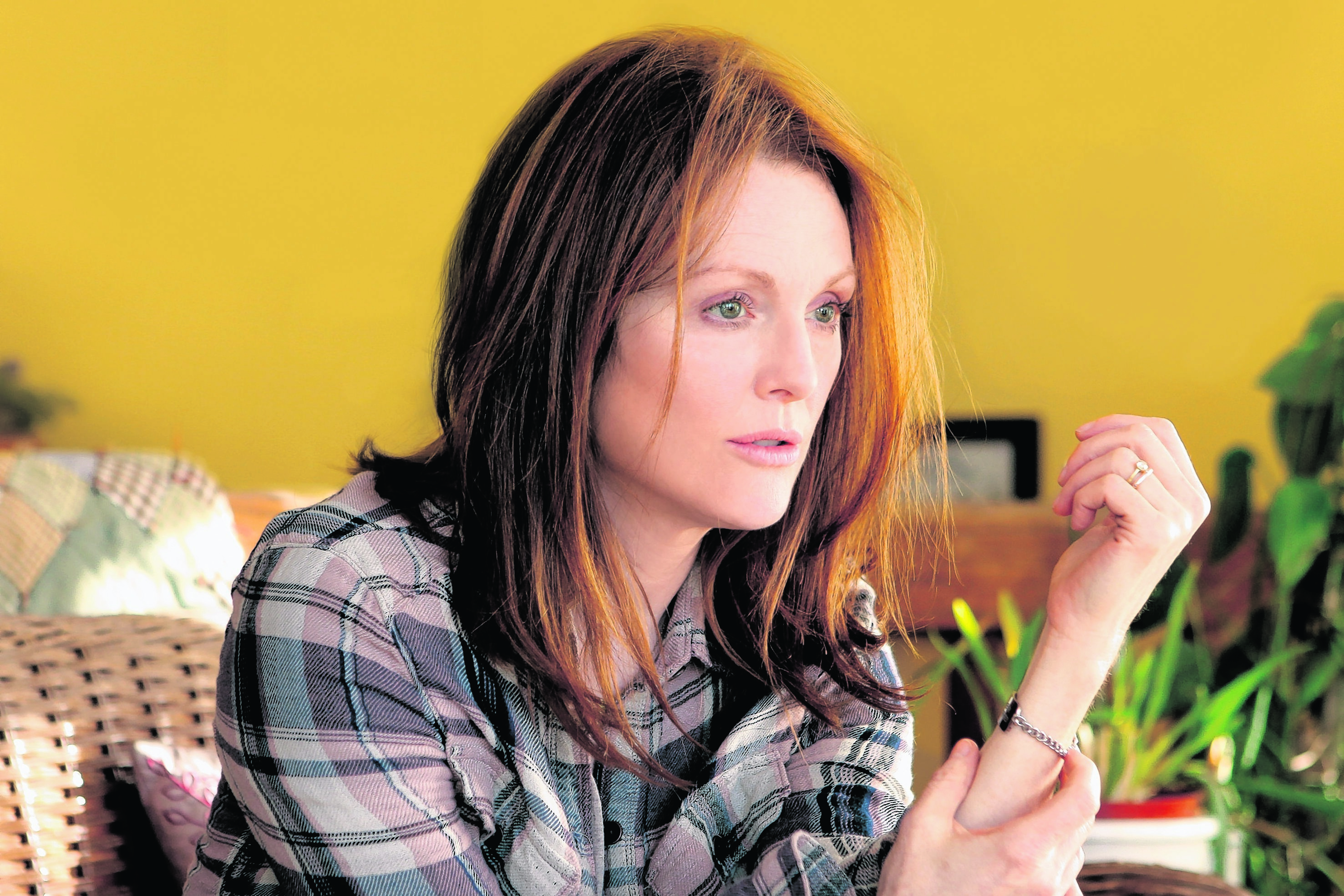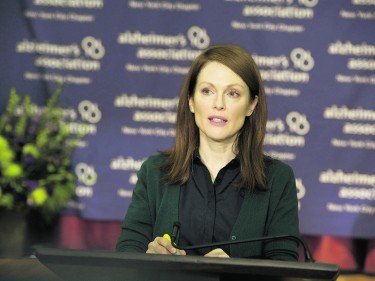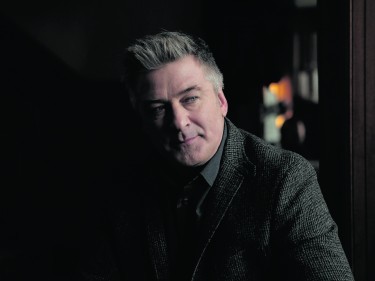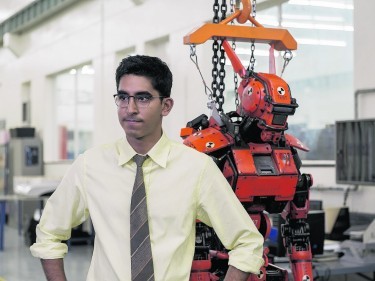STILL ALICE (12A)
4 stars
Memories are twinkling stars in a celestial map linking our past, present and future.
Some of these glittering orbs dim naturally over time, such as first experiences from childhood, while others are temporarily obscured by the fog of modern life, like when we forget a friend’s birthday, what we dreamed last night, to water the plants or the last place we saw a set of keys.
Alzheimer’s is an incurable neurodegenerative disease that slowly robs a patient of the ability to see these stars and chart a safe passage back to the people they love.
Names and faces of friends and family fade to black.
For those left behind, staring into the unblinking eyes of a close relative who no longer recognises you, is an anguish that defies words.
Julianne Moore delivers an Oscar-winning performance as a fortysomething mother faced with an early diagnosis of this cruel disease in Richard Glatzer and Wash Westmoreland’s heartfelt drama.
Based on the novel by Lisa Genova, Still Alice simply, yet powerfully, conveys the emotional devastation for the central character and the ripple effect for her family.
Celebrated linguistics professor Alice Howland (Moore) leads a charmed life.
She has a husband, John (Alec Baldwin), and three grownup children, Anna (Kate Bosworth), Tom (Hunter Parrish) and Lydia (Kristen Stewart), who are forging divergent paths through life.
During a lecture that she has prepared rigorously, Alice inexplicably loses her train of thought.
“I knew I shouldn’t have had that champagne,” she jokes to appreciative giggles from her audience.
Alice begins to forget simple vocabulary and seeks guidance from family medic Dr Benjamin (Stephen Kunken).
He rules out tumours or a stroke, but suspects that Alice is exhibiting the early symptoms of Alzheimer’s.
“It would be rare for someone as young as yourself, but you do fit the criteria,” he tells her soberly.
Tests confirm the doctor’s fears and since the condition can be passed down, Alice calls together her brood.
She advises her children to be tested, which poses a dilemma for Anna and her husband, Charlie (Shane McRae), who are expecting twins.
Anchored by Moore’s spellbinding work, Still Alice
is a modern family portrait
that will strike an unsettling chord.
Baldwin tugs our heartstrings and Stewart offers strident support as the youngest member of the clan, who moves back home to reconnect with her mother while there is still time.
“I wish I had cancer,” Alice tells John. “I wouldn’t feel so ashamed. When people have cancer they wear pink ribbons for you and go on long walks and raise money.”
Still, Alice feels no shame or cloying self-pity.
Writer-directors Glatzer and Westmoreland treat characters with sensitivity, touching lightly on the frustrations and blind terror that will become more frequent for Alice and her inner circle as the disease progresses.
CHAPPiE (15)
South African writer-director Neill Blomkamp, who was Oscar-nominated for the 2009 sci-fi thriller District 9, steps back into the future for this provocative action adventure expanded from his own 2004 short film, Tetra Vaal.
Scientist Deon Wilson (Dev Patel) has blessed a robot called CHAPPiE (voiced by Sharlto Copley) with artificial intelligence and encourages the automaton to think and feel for itself.
Deon and his inner circle introduce CHAPPiE to art and culture, marvelling at their creation’s ability to ingest and process new information like a newborn glimpsing the world for the first time. Alas, doomsayer Vincent Moore (Hugh Jackman) expresses concern about the threat posed to the public by a learning intelligence such as CHAPPiE and he instigates a bitter war of words and explosive weapons to destroy the robot. Sigourney Weaver co-stars.



